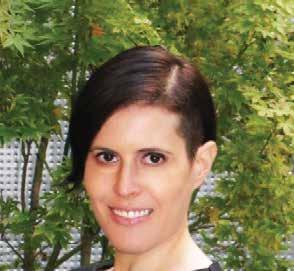LEADERS' OUTLOOK
Affordability, Scalability Key to Ubiquitous Space Access BY YUYA NAKAMURA
T
President & CEO, Axelspace Corporation
echnology advancements in artificial intelligence (AI) and machine learning (ML) make it easier to extract data from satellite constellations. In order to analyze datapoints and fetch information that can be converted into actionable insights, AI plays a crucial role in meeting accuracy, efficiency and customer expectations. AI is crucial for business diversification and value enhancement as well. We are hiring AI engineers and partnering with analytics companies all over the world to provide solutions for end users.
ANNUAL EDITION / JANUARY-FEBRUARY 2022
Enabling access
58
Affordability remains another key factor in democratizing Space access. We have a slogan: Space within Your Reach. In the past, everything about Space was prohibitively exorbitant. Hundreds of millions of dollars were needed just to make one satellite. The advent of microsatellites proved to be a true gamechanger. AxelSpace has been a pioneer in microsatellites. The first commercial meteorological micro satellite was made by us. We are able to offer insights from our data sets at a really low cost. AxelGlobe is our key platform. A lot of our constellation data is processed and stored on it. We capture data every day and
Tech advancements will make Space access more widespread in the years to come.
analyze it according to change detection, as per client needs. Currently, we have five satellites in orbit. We will be launching four additional satellites by the end of this year. With nine satellites, we can monitor things anywhere in the world on a daily basis. Axelspace uses satellite imagery for various purposes such as forestry, agriculture, and infrastructure monitoring. We are also working with organizations on linear infrastructure detection, be it for railway monitoring projects or Smart City initiatives. Our aim is to lower entry barriers for clients who wish to utilize Space data. So we are providing them not only with satellite data but also with insights we can get from analysis.
Disaster response and resilience
Japan is vulnerable to many natural disasters, so disaster mitigation and resilience have always been our focus. Disaster mitigation and assessment are areas where satellite imagery plays a key role. We’re actively looking into how our data can contribute to monitoring the environment. Another interesting application of satellite imagery is in supply chain monitoring. Due to COVID, no one can travel freely. But even in this situation, monitoring is vital. While satellites cannot solve every problem, they can definitely help garner crucial information. Supply chain monitoring is an emerging application area that would become ‘the new normal’ in the near future. One of our key strengths is tasking capability. Many
organizations don’t have flexible tasking mechanisms, but we are able to task as per client requirements.
Way ahead
We want to make a scalable business for supply manufacturing. To achieve that we are working towards a mass manufacturing system. By 2024 we aim to manufacture at least 50 satellites a year. The Japanese government is supporting us in this project. Going forward, we will be focussing on both the upstream and downstream satellite business. From the upstream point of view, we will be in mass manufacturing of satellites for various use cases. And in downstream, we will use AxelGlobe to solve lots of different issues: sustainability issues, ecology, defense, land monitoring, etc.










































